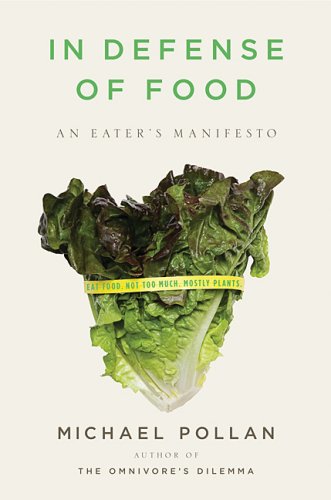Okay, this will be my book post. Although something is bound to come up and dash my good intentions. Oops, I just checked my email and there’s that something. Well, it’s a good something, so maybe it will just have the impact of energizing me. First then, then a bit of exercise, then think about the something. And then post on another book.
On Monday, because I am, indeed, that woman, during this event:

I was reading this:

Sort of wrong on a couple levels, isn’t it?
Well, the book was okay – I didn’t read The Omnivore’s Dilemma – but picked this up for the weighty reason that I found it in the back seat of Michael’s car on the way to the game.
Although you really can’t tell it completely from the way I cook and eat, I’ve been on this bandwagon for 20+ years, in spirit, as I say, if not in practice. I mean, Diet for a Small Planet was on my bookshelf and Recipes for a Small Planet was on my kitchen counter before some of y’all were even born. I’m not paranoid or even a very good practioner of what I think is best (er..obviously…from the photo), but I do at least avoid processed foods in cooking as much as I can – in other words, I prefer to cook rather than assemble. And I’m going to redouble my committment to depending more on locally-produced produce and meats and so on.
The most interesting part of this book, to me, was Pollan’s destruction of Nutritionism – the idea that the value of a food is nothing more than the sum of its nutritive parts. Not so. Add it to the list of “What you thought you knew…” I thought his argument about the human body’s adaptation to food was fascinating – looking at various studies of the health of indigenous peoples on traditional diets – all with low levels of heart disease and even tooth decay – when they eat that traditional diet, a diet which can be widely and wildly varied, ranging from seafood-dependent to vegetable-heavy to barely-any-vegetables. So, it’s not just the Meditteranean Diet or the Eastern Diet – it’s eating what your body, via your ancestral roots – has adapted to and thrives on. Which of course, in modern times with modernity, industrial farming and food production and mobility, is a link that is totally broken.
Okay…next!
More from Beliefnet and our partners
